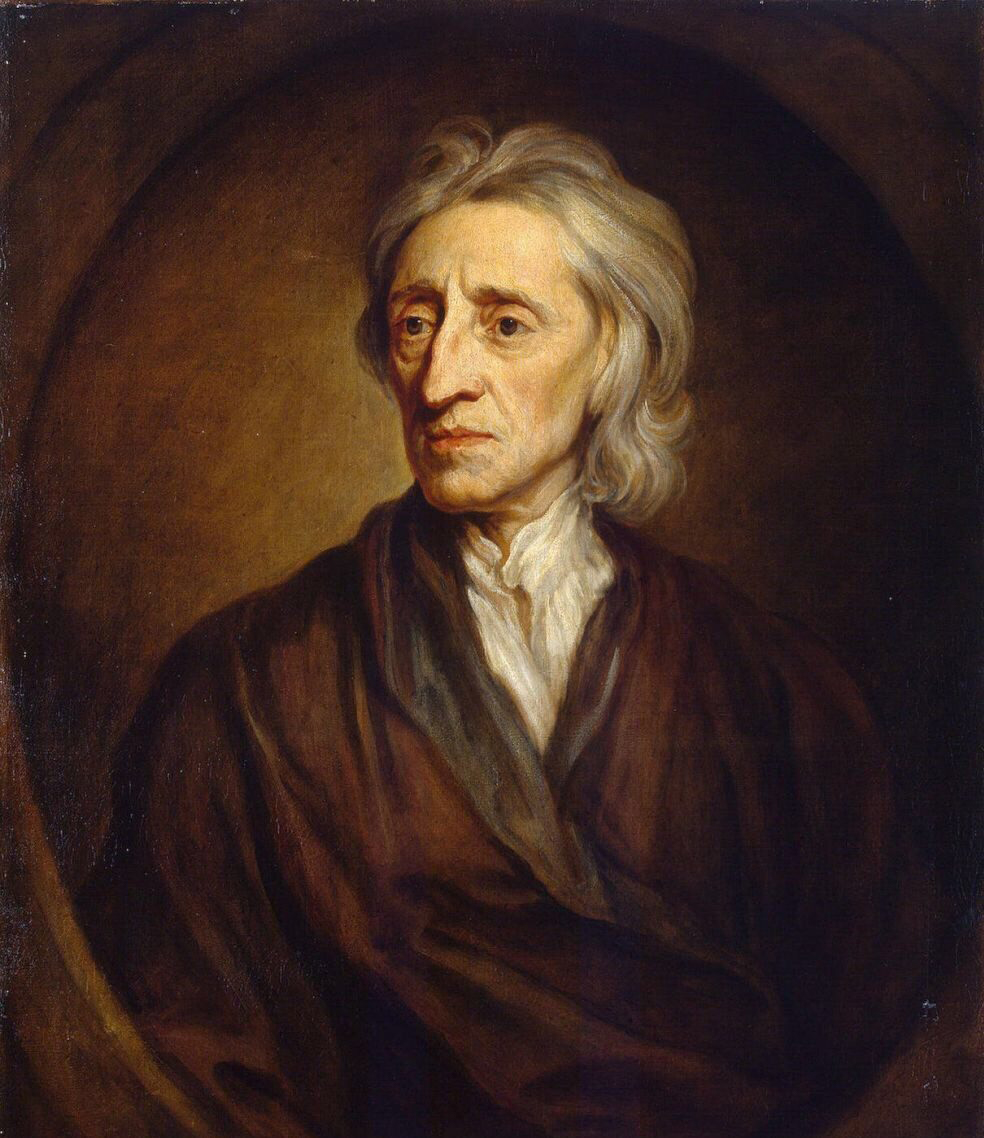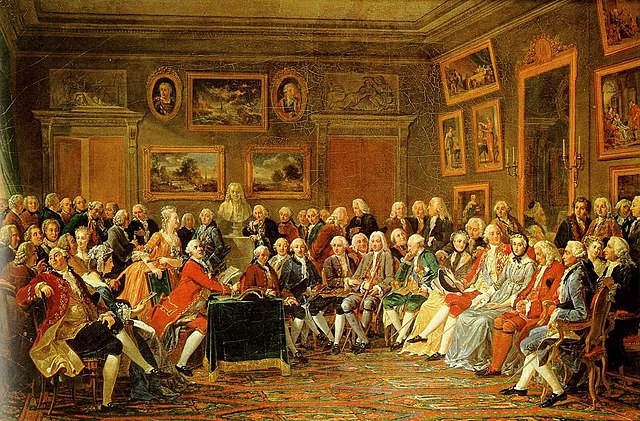<< Hide Menu
Dalia Savy
Andrew Fultz
Dalia Savy
Andrew Fultz
Reason and Individualism Gain Traction
The Enlightenment was a philosophical movement that emerged in the 18th century and emphasized reason, individualism, and skepticism. It was a time of great intellectual and cultural awakening, and it laid the foundations for many of the values and ideals that continue to shape modern Western society.
Central Ideas of the Enlightenment
“Reason over Revelation” is normally a tagline associated with The Enlightenment, signifying how people began looking to humans, rather than a deity, to solve their problems and make reason of things going on in their lives. This is a significant change from medieval Europe, where one relied on revelation, tradition, and authority to guide their beliefs and actions. Now, out of reason emerges new political ideas about people, natural rights, and the function of government:
- Being born with a tabula rasa, or blank slate, is a central tenet of Enlightenment thought. It suggests that people are born without innate knowledge or predispositions and that their experiences and environment shape who they become. This creates the idea that everyone is born equal and the son of a king does not have a divine right to rule.
- John Locke wrote a work of political philosophy, titled, "Two Treatises of Government." He argued that people have certain inalienable rights, including the right to life, liberty, and property, that are protected by the government. He believed that these rights are granted by God and are not dependent on the government or any other authority. If any government did not serve its purpose of granting these natural rights, the people had the right to alter or abolish it.
- The idea of the social contract arose during this time period as well, suggesting that people agree to give up some of their individual freedom and rights in order to live in a society with a shared authority or government. According to the social contract theory, government is a product of this agreement, and it exists to serve the common good and protect the natural rights of its citizens.

John Locke; Image courtesy of Wikipedia
New Ideas Challenge Old Ideas
Prior to the Enlightenment, many societies were based on traditional systems of hierarchy and authority, and people were often expected to accept their place in the social order without questioning it. The Enlightenment, however, encouraged people to think for themselves and to challenge traditional authority and conventions. This led to a questioning of traditional social institutions, such as patriarchy, slavery, and monarchy, and to the development of new ideas about equality and justice.
These changes often produced tension and conflict in society, as people who benefited from the traditional order resisted efforts to change it. In some cases, these tensions led to bloody revolutions and other forms of social and political upheaval, especially as Enlightenment ideas spread from France and Britain.
Nationalism and States and Empires
Nationalism is a political ideology that emphasizes loyalty and devotion to one's nation. It often involves a strong sense of national identity and pride, and it can manifest in various ways, including through patriotism, political action, and cultural expression. Nationalism can be a positive force, promoting unity and a sense of belonging among a nation's people. However, it can also have negative consequences, as it can lead to a sense of superiority over other nations and to conflicts and tensions between different groups.
This ideology actually played a significant role in many of the conflicts and movements that took place during the revolutions of 1750-1900. The creation of the Italian and German states in the late 1800s, for example, was driven in part by a desire for national unity and independence. Nationalist sentiment was also a key factor in other revolutions and political movements of this period, such as the American Revolution and the Haitian Revolution.
Key Philosophers
There were many philosophers in the Enlightenment period whose writings and ideas had a significant impact on developing Western thought. The following are some examples:
- Thomas Hobbes was best known for his work on the social contract. He argued that the natural state of humanity is a state of war and that people form governments in order to escape this state and ensure their own safety and security. Hobbes believed that the role of government is to provide order and stability, and he argued that people must give up some of their rights in order to live under a strong, centralized government (as stated by the social contract).
- John Locke was known for his ideas about natural rights and the social contract, as discussed above. Remember that he believed if natural rights were not being protected, the people have the right to overthrow the government.
- Baron de Montesquieu was a political theorist best known for his ideas about checks and balances and the separation of powers. He argued that in order to protect against tyranny, a government should be divided into different branches, each with its own distinct powers and responsibilities.

Image Courtesy of Wikipedia
- Voltaire was a French Enlightenment writer famous for his advocacy of freedom of religion, freedom of speech, and separation of church and state.
- Jean-Jacques Rousseau was a French philosopher who expanded on the social contract theory, emphasizing the importance of the common good. He argued that people are naturally free and equal and the role of the government is to serve the common good and protect the will of the people / their natural rights.
- Adam Smith is known for his ideas about capitalism and free markets. He argued that individuals acting in their own self-interest will produce the greatest good for society as a whole.
- Thomas Paine is best known for his role in the American Revolution, advocating for U.S. freedom from Britain. He wrote a number of influential pamphlets, including "Common Sense," arguing for independence.
Enlightenment & Reform Movements
As the Enlightenment ideals of equality, natural rights, and the idea that government derives its authority from the people gained widespread acceptance, many people who had been marginalized or oppressed began to demand that these principles be applied to their own lives. This included enslaved people, women, and serfs, who had long been denied equal treatment and basic rights.
The Enlightenment's emphasis on individual rights and freedoms inspired enslaved people to fight for their own liberation and to challenge the institution of slavery. Women, who had been largely excluded from political and social life, also began to demand greater equality and challenge traditional gender roles. Similarly, serfs, who were tied to the land and had few rights, sought to assert their own autonomy and gain greater freedom and opportunity. Serfdom essentially ended by 1750.
Women, on the other hand, had to continuously fight for their right to vote well into the 20th century. Suffrage did expand to poorer and less educated males throughout 1750-1900, but not for women.
An important example of women demanding suffrage took place at the Seneca Falls Convention (1848). This convention, led by Elizabeth Cady Stanton and Lucretia Mott, used ideas regarding natural rights and specifically applied them to suffrage for women. In fact, they rewrote a portion of the Declaration of Independence, a document that started the American Revolution, to include women: “We hold these truths to be self-evident; that all men and women are created equal…” Their document, the Declaration of Sentiments, intends to convey that women are willing to start a revolution against patriarchy because they believe in suffrage so strongly.
Religion, New Ideas, & the Enlightenment
Enlightenment philosophers and religious leaders did not necessarily agree on various issues. Many Enlightenment philosophers followed Deism, which involves believing in a creator that does not upset the natural order. It would be ridiculous from the Deist perspective to have a divine being rise from the dead. This is a major change from medieval European religious ideas.
For example, Thomas Jefferson is a widely known Deist. He (and other deists) embraced a notion of a universal, clock-maker-type creator that set natural laws in place. However, he famously edited a copy of the Bible to remove parts he thought were inaccurate.
| Enlightenment -ISMs |
| Empiricism |
| Socialism |
| Classical Liberalism |
| Classical Conservatism |
| Nationalism |
| Utopian Socialism |
| Feminism |
| Abolitionism |
| Zionism |
| Anti-Semitism |

© 2024 Fiveable Inc. All rights reserved.